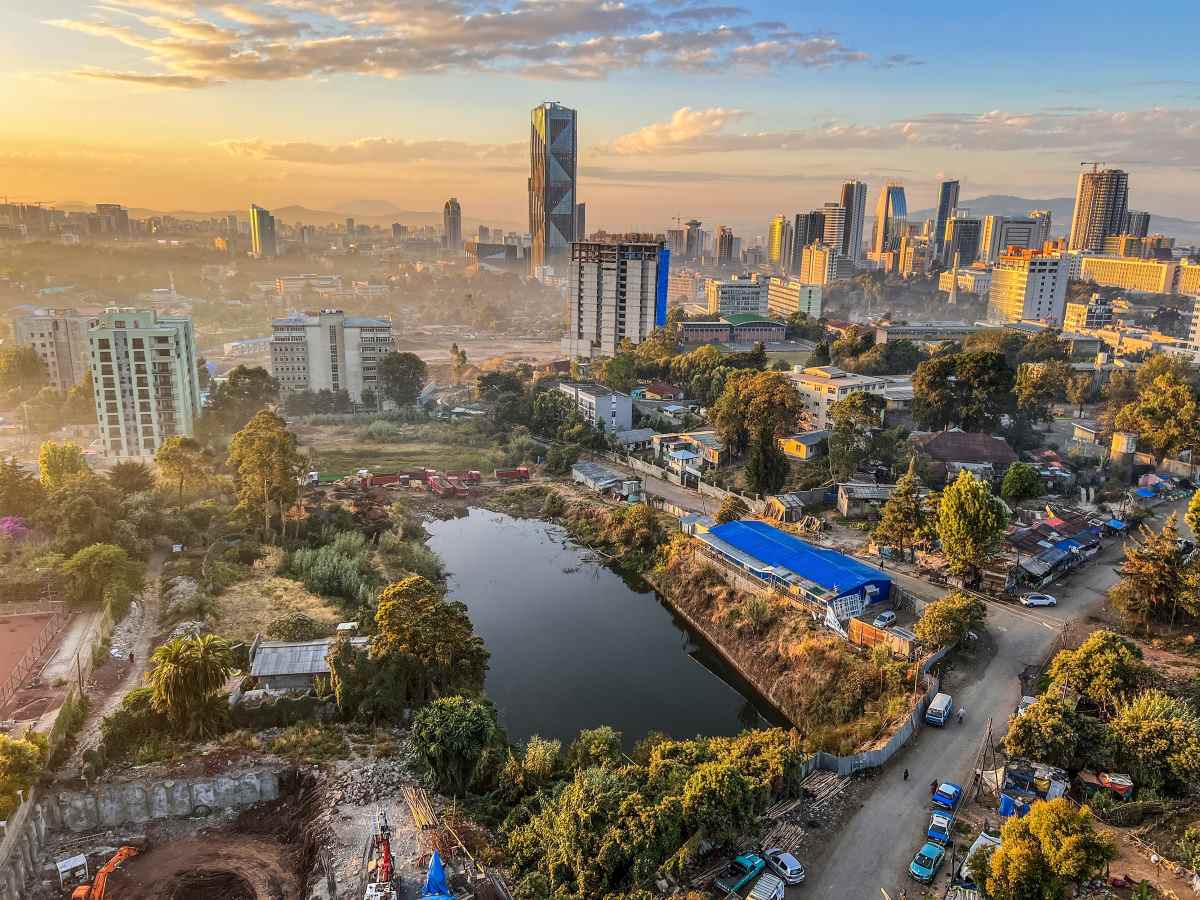Ethiopia has completed filling works on the $4.2 bn Grand Ethiopian Renaissance Dam (GERD) on the Nile. The project aims to produce electricity for 60 percent of its population who currently have no supply.
At full capacity, the huge hydroelectric dam – at 1.8 kilometers long and 145 meters high – could generate more than 5,000 MW.
In addition, Ethiopia hopes the mega dam will eventually double Ethiopia’s electricity output, providing businesses with constant electricity supplies to boost economic growth.
Ethiopia’s Prime Minister Abiy Ahmed announced the milestone recently on X, formerly Twitter, saying, “Today’s heroic generation will build tomorrow’s strong Ethiopia on a solid foundation.”
Read: Ethiopia vies for BRICS membership
GERD impact on other countries
Besides GERD’s economic benefits for Ethiopia, it could also provide electricity for neighboring countries including Sudan, South Sudan, Kenya, Djibouti and Eritrea.
Egypt and Sudan, however, have voiced objections to the dam. These countries say GERD will reduce the share of Nile water they receive.
Egypt, with its 107 million people, relies on the River Nile for nearly all of its fresh water. Nile water is also used to fill Lake Nasser, the reservoir for Egypt’s Aswan High Dam power plant.
However, Ethiopia has firmly said that GERD will not reduce the volume of water flowing downstream.
Talks to continue
Negotiations have been ongoing for a tripartite agreement on the dam’s operations. Talks were suspended in 2021, but resumed last month when Abiy Ahmed met Egyptian President Abdel Fattah El Sisi in Cairo. Ethiopia says more talks are planned in its capital Addis Ababa this month.
In the Declaration of Principles signed by Egypt, Ethiopia and Sudan in 2015, the parties agreed to “cooperate based on common understanding, mutual benefit, good faith, win-win, and principles of international law.” Moreover, the countries involved also agreed to “cooperate in understanding upstream and downstream water needs in its various aspects.”
For more news on the economy, click here.








